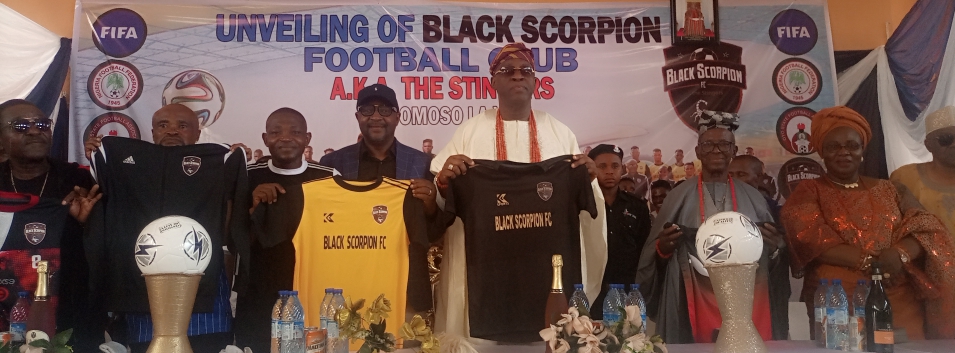Paolo Rossi reveals whether the critics got to him during Spain 1982. He discusses the tremendous camaraderie in Enzo Bearzot’s Italy squad. He explains his unusual view that strikers should be unselfish.
Paolo Rossi hadn’t scored for Italy in almost 15 hours of action and over three years. Yet heading into their fifth outing at the 12th FIFA World Cup, coach Enzo Bearzot ignored the media’s hullabaloo for his dropping and ‘Pablito’, as he became that day in Barcelona, bewildered Brazil. Rossi finished Spain 1982 with the adidas Golden Boot and adidas Golden Ball. La Nazionale finished it as champions.
Rossi candidly chats to FIFA.com about his limitations as a footballer and that aforementioned goal drought, and discusses Bearzot’s faith in him, the exceptional camaraderie in that Italy squad and getting his hands on the Trophy.
Paolo, what does the World Cup evoke for you in general?
Paolo Rossi: For me the World Cup is the ultimate objective for a professional player. It brought me fame, popularity and success, starting with my first World Cup in 1978, which was already a great success. I was 22. Italy didn’t win the tournament, but my performances came in for a lot of significant praise. That’s when my career really took off. Then, four years later, we were lucky enough to win it. For a player, winning the World Cup really is the ultimate goal.
You fell on tough times between the two World Cups. Was it Enzo Bearzot’s faith in you that made the difference in 1982?
The fact that Bearzot trusted me was fundamental. Without a coach like Bearzot, we probably wouldn’t be having this interview about our victory and how I became top scorer. When I started playing again after two years out it was really, really tough. And Bearzot’s trust was very important, as well as the support of my team-mates.
Even after the first four matches?
Definitely. Even when I failed to score, I knew they still had faith in me. This is fundamental for a player. Because if you find yourself in an atmosphere where you feel that your team-mates and the coaching staff have lost faith in your abilities, it becomes difficult to perform.
Did the press get to you?
The press, well, not really… I always had a good relationship with the papers. But I must say that I never really thought about it. I always just got on with my job. When you play badly it’s perfectly normal to draw criticism from the media. It’s part of being a sportsman. It’s also true that when you come in for unjust criticism it can stimulate you to go out and do better.
Suddenly against Brazil you scored three times. What had changed? Do you remember those goals?
In every player’s career there are certain moments you simply never forget. This was one of them. The first goal was the most important one because it gave me back my confidence in every sense of the word. From that moment on it was as if someone up above was looking out for me. Everything suddenly changed. Nothing was going my way and then suddenly everything was going my way. It was suddenly all so easy. Such is the beauty of sport. A goal can change everything. In my case it changed my entire life.
Was it a question of confidence?
Yes, it was a question of confidence. I was under so much pressure because everybody had such high expectations of me. Then when you don’t deliver it’s like you’re in limbo. A goal, when it comes, is like manna from heaven for a striker. It gives you a whole new lease of life.
Did your team-mates treat you differently after the Brazil game?
No. They just said, “Finally, a goal – about time!” It was the last World Cup with that bunch of players. A bunch of really great guys. We were great friends, very close to one another. There was tremendous sense of solidarity. That was down to the coach. The atmosphere in the camp was great and it was a very talented squad of players. Guys who had won a lot of honours, five or six league titles and international titles too. That was all important. I was so lucky to be part of it all.
What do you remember best: your goals or the final whistle?
No, what really stays with me is seeing all the Italian flags in the stadium after the ref had blown the final whistle. That’s what I’ll always remember. Of course I remember the goals, all those great moments. But when I lifted my head and saw all those flags all over the stadium… I’m not a nationalist, but at moments like that you really feel like you belong to something. You belong to a group, to a nation. All these feelings come out. Seeing the stadium simply covered with Italian flags was an extraordinary moment, one I will remember forever.
Had Bearzot foreseen the outcome of the Final?
No, I don’t think so. A coach can make plans, but a match usually turns out differently. The victory against Brazil was important because it created a certain aura around us as a team. To the extent that the games after that seemed like mere formalities, even though they weren’t. The Poland game seemed easy by comparison, the Germany game too. We felt like world beaters, nobody could touch us.
And was the moment when you received the World Cup Trophy a special moment in your life?
You bet. It was an indescribable joy. When you’ve been playing football all your life it’s a dream come true. When you lift it… but you don’t realise at the time, it takes a while to sink in. With the passing of time you realise you’ve done something exceptional and, most importantly, you’ve made so many people very happy. The results in themselves are actually meaningless, the personal achievement. But knowing that all those people have gotten so much pleasure from what you have achieved brings a tremendous sense of inner joy.
Don’t goalscorers have to be innately selfish to be good at what they do?
No. Football is a team game. A goalscorer is nothing without his team-mates. Me in particular. I wasn’t the type of player who could go it alone. I was the guy who finished off the move in the last six, five or two metres. But I needed someone to set me up. I couldn’t do that myself. I always looked at football as a team sport, never from an individual point of view. I never saw scoring a goal as more important than winning as a team. If my team-mate was in a better position than me I always passed him the ball.
You went back home with Italy President Sandro Pertini the next day…
Yes, it was just magnificent. I don’t exactly remember when we arrived home, but I do remember the unbelievable reception we received. From Ciampino Airport to the Quirinale Palace, where we went to dine with the President, I remember a continuous flood of people, all cheering in the streets. It was as if the war had ended. These are historical moments when everybody remembers if they were there or what they were doing at that time. There aren’t many moments in life like that. Fabulous, wonderful memories. Moments of joy and happiness for everybody.
How do you explain people’s fascination with football?
How can anyone explain football? When I meet people from other sports they often say, “Football is everywhere, it’s the king of all sports”. But I’m not the one who makes it so. People just love football. God bless whoever invented football. It was the English, I think. And what a fantastic idea it was. A game where the team at the bottom of the table can beat the team at the top. You can score four goals in four minutes and upset all the odds. What other sport engenders as much excitement? Very few. I like other sports but what football stands for is just extraordinary.


